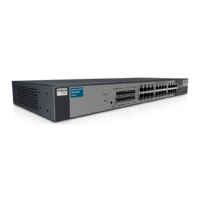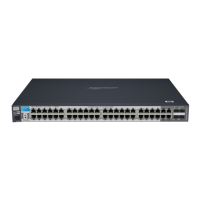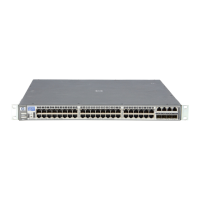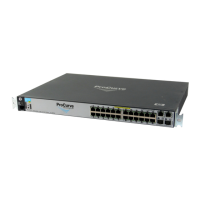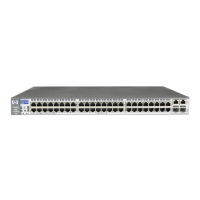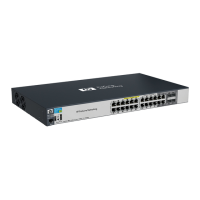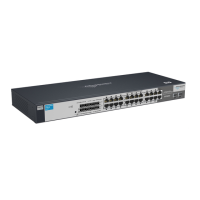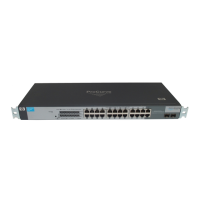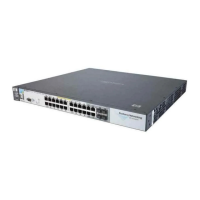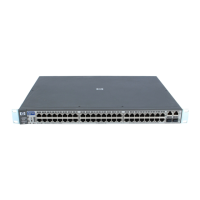2-23
Static Virtual LANs (VLANs)
Port-Based Virtual LANs (Static VLANs)
Creating a New Static VLAN
Changing the VLAN Context Level.
With this command, entering a new VID creates a new static VLAN. Entering
the VID or name of an existing static VLAN places you in the context level for
that VLAN.
Syntax: vlan <vlan-id> [name <name-str>]
Creates a new static VLAN if a VLAN with that VID does not
already exist, and places you in that VLAN’s context level. If
you do not use the name option, the switch uses “VLAN” and
the new VID to automatically name the VLAN. If the VLAN
already exists, the switch places you in the context level for
that VLAN.
vlan <vlan-name>
Places you in the context level for that static VLAN.
For example, to create a new static VLAN with a VID of 100:
Figure 2-18. Example of Creating a New Static VLAN
To go to a different VLAN context level, such as to the default VLAN:
ProCurve(vlan-100)# vlan default_vlan
ProCurve(vlan-1) _
Converting a Dynamic VLAN to a Static VLAN. If GVRP is running on
the switch and a port dynamically joins a VLAN, you can use the next
command to convert the dynamic VLAN to a static VLAN. (For GVRP and
dynamic VLAN operation, see chapter 3, “GVRP”.) This is necessary if you
Creating the new VLAN.
Showing the result.
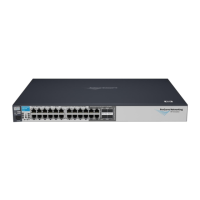
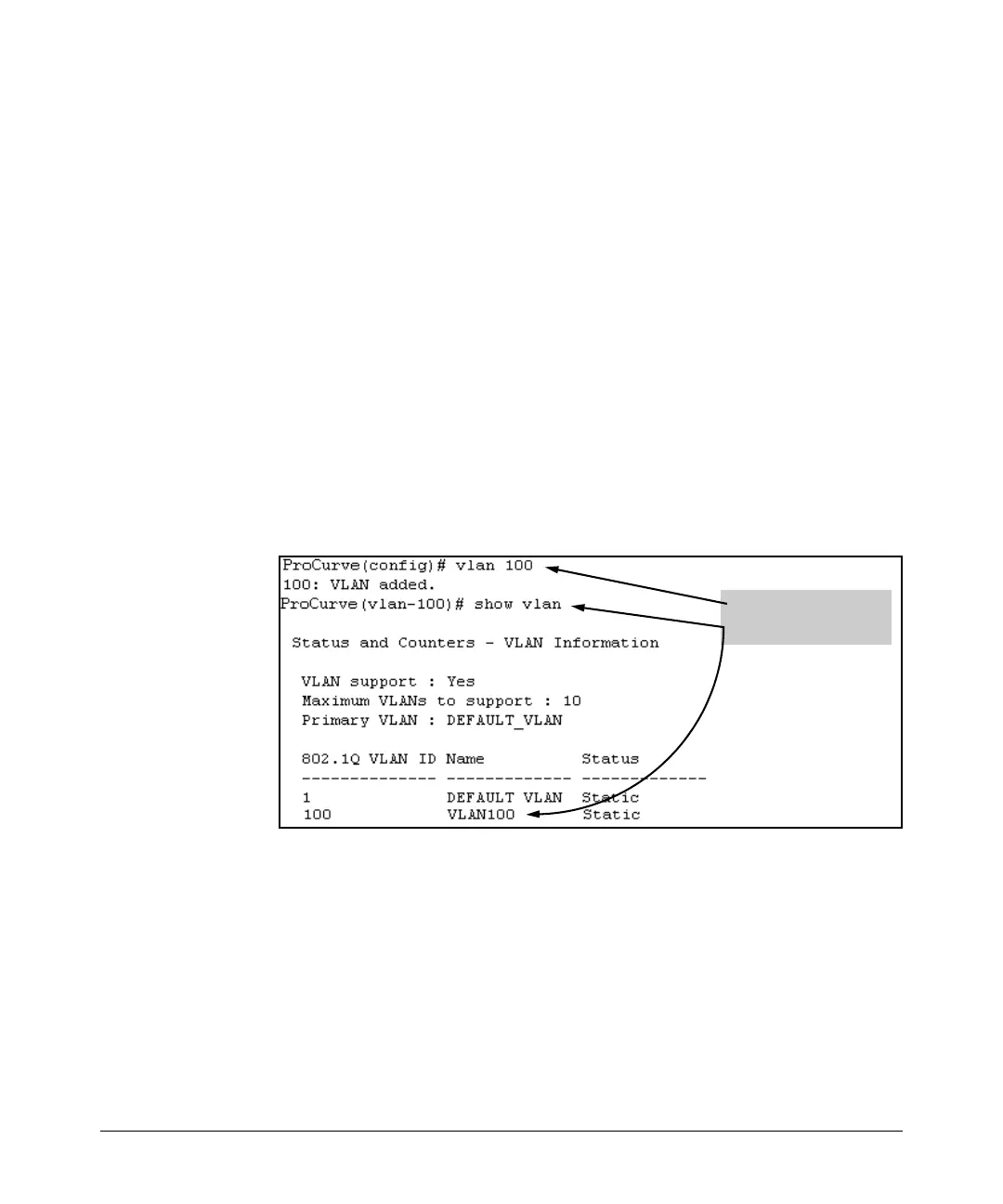